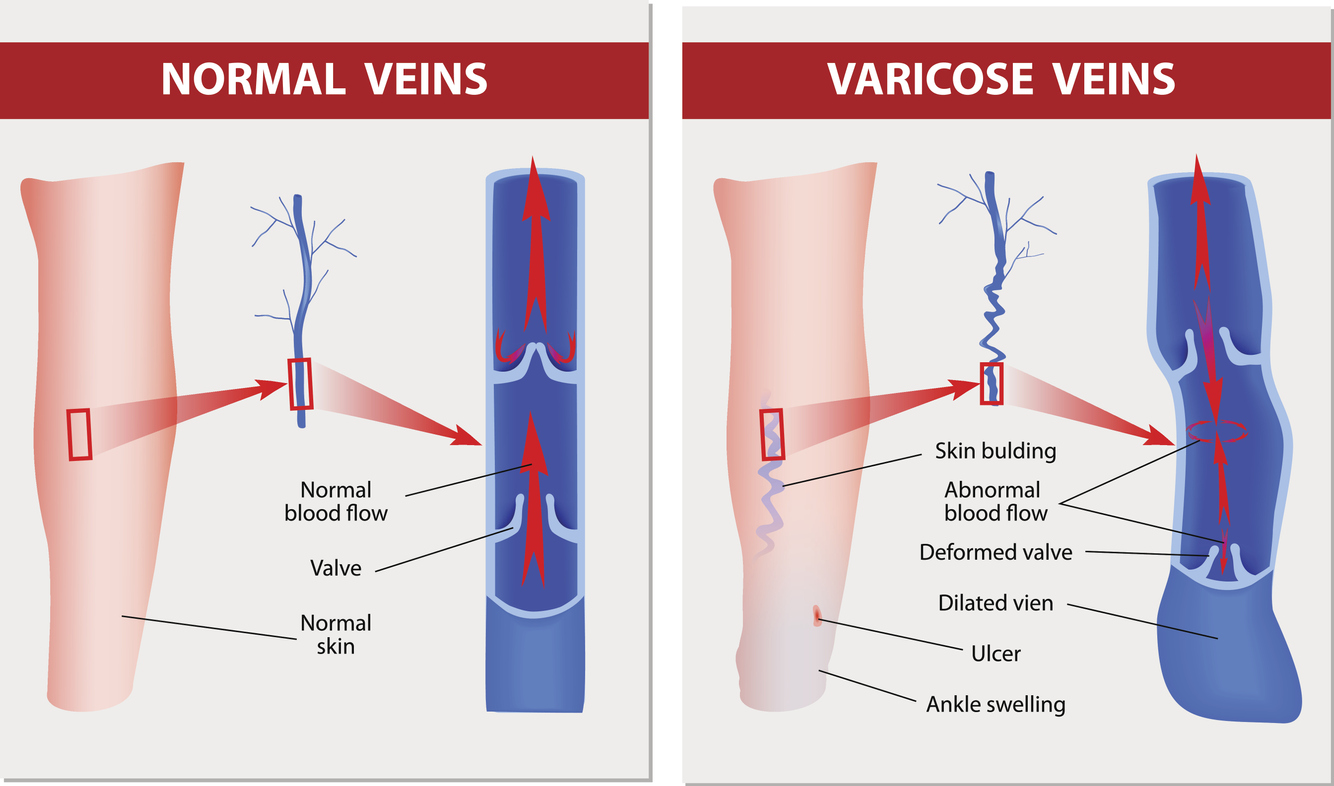What Causes Venous Pooling?

What is venous pooling?
Venous pooling is also known as chronic venous insufficiency or venous reflux occurs when the small valves in our leg veins become damaged and no longer function properly. The purpose of our veins is to pump blood back to the heart. Our veins often have to work against gravity to accomplish this goal. The leg veins have to work the hardest in the body due to the long distance the blood has to travel. This is why many people have issues with veins in their legs.
As the blood is pumping through the veins back up to the heart the purpose of the valves is to open and close to prevent the backflow of blood or “venous pooling”. If the valves are damaged the blood will pool in the legs, ankles, and feet and symptoms will develop over time.
What causes venous pooling?
Blood pooling can be caused by the following:
- Family history
- Weight
- Pregnancy
- Occupations with extended sitting or standing periods (teachers, surgeons, etc.)
- Inactivity
- Deep venous thrombosis (can cause damage to the valves in the veins)
- Damage to your legs from surgery or injury
What are the typical symptoms caused by venous pooling?
- Swelling
- Heaviness
- Fatigue
- Aching
- Throbbing
- Skin discoloration
- Varicose veins
- Spider veins
- Restless legs
- Cramping
- Itching
- Burning
- Leg ulcers (typically on the inner aspect of both legs
How can I prevent venous pooling?
Now that you have a better understanding of what venous pooling is, the causes, and the symptoms, it is important to know how to prevent it. Wearing compression stockings is a great way to prevent venous pooling and also conservatively manage the issue if you have already been diagnosed. If you are overweight, starting a diet and workout regimen to lose weight will help take the excess pressure off the legs. While pregnant, it is also important to wear compression stockings due to the increased weight gain over the 9-month period. If you are doing anything that will increase the blood pressure in your legs like sitting or standing for extended periods of time or exercising, compression stockings would be beneficial to wear as well. Overall, venous pooling is difficult to prevent, however, there are ways to slow the progression early and manage the disease by educating yourself on what causes the disease.
What to expect from Vascular Specialists at CVM?
At the Center for Vascular Medicine, our mission is to help patients with their vascular diseases in a cost-effective and compassionate manner. We specialize in the diagnosis and treatment of venous and arterial diseases in the legs, feet, and pelvis. Our world-class vascular providers are the most experienced in the specialty and work with patients to develop a treatment plan that is custom-tailored to their unique situation.
Typically, this process involves an initial consultation with a possible ultrasound scan at one of our facilities. After reviewing the results of your scan and obtaining a thorough medical history, our providers will discuss the results with you and help you decide on the next steps.
Call to schedule at (301) 486-4690 or fill out a request to consult form.

